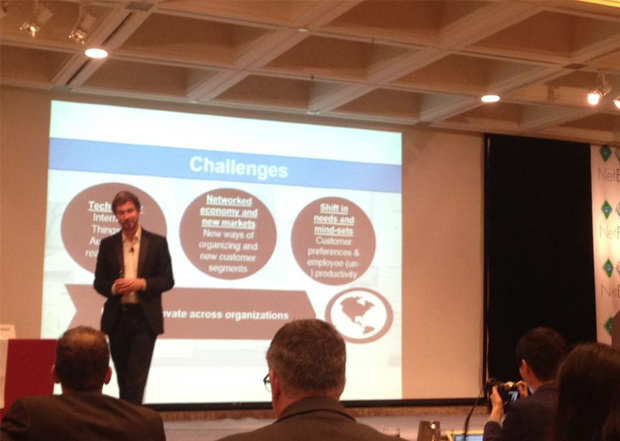“If we take man as he is, we make him worse. But if we take him as he should be, then we make him capable of becoming what he can be.”
– Goethe
SINGAPORE – A version of social enterprise – that is, businesses that are developed to respond to social needs while earning doing this, instead of simply offering services only to earn – is fast emerging as the ideal in business innovation. This is according to Dr. Christian Busch, associate director, Innovation and Co-creation Lab, London School of Economics, who said at NetEvents 2016 that “companies are changing so that they develop solutions that are not only responding to business needs but also to answer social issues.”
“What we see now emerging is companies trying to understand what they want to change, who they want to reach, and so on. Thus the focus is on the outcome first, and then build the solutions/approaches around it,” Busch said.
For Busch, this is a result of what he called as “Generation ‘Why?’” – that is, this group of people that is not necessarily defined by any category (such as age group) but the “approach to developing businesses that respond to needs (thus the ‘Why?’)”.
Members of “Generation ‘Why?’” has the “mindset of questioning things,” Busch said. This, in turn, introduces a response to the “‘enlightened circle’ of needs.” And the approach of “Generation ‘Why?’” could help make businesses not only thrive, but even survive.
These “enlightened circle of needs” fall into various categories.
For one, there’s the “action-driven purpose”. Here, “rather than saying, say, we build a company and then an NGO; we say instead, ‘How can we integrate that into the company?’” As such, there is a “shift away from what they do, but why do we do what we do? First comes the purpose, then comes the product – not the other way around,” Busch said.
Another is the “genuine value/s”. “Aside from the different products you have, what do you stand for? What are your corporate values? It makes people proud; it gives them meaning,” Busch said.
Yet another is the re-focus on “incentives” – that is, “we veer away from just counting (what we sold). Instead, we measure what really matters to people.” This way, “we check the outcome not just for the company but the impact to the customers of the company.”
Busch said that this approach to doing business could actually save companies. That is, “if they don’t adapt, the harsh answer is that they will go out of business.” And even if they do survive, these businesses “won’t attract the best people.” So that in the end, “it’s between survival and doing the best that you want to do with your company,” Busch said.
There are steps that business can take to evolve in this direction, including: shaping of a culture of innovation; moving from product to experience (“Now it’s less about physical artifacts but more about the experience with them,” Busch said); and building effective social networks (i.e. to do this, businesses should create parameters based on shared values, identify and empower ambassadors, facilitate decentralized connectivity and engender lateral accountability).
“We’re moving away from just product innovation,” Busch said. Now, “companies create value. They respond to bigger societal issues – one of the big things is looking at issues to solve, so we don’t just have apps (for instance).” Because mainly, “if you want to scale at the same time to have an impact, you need to change your approach,” Busch ended.











































































































